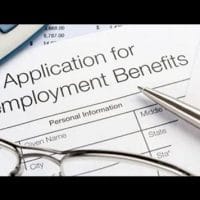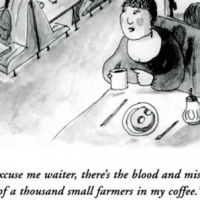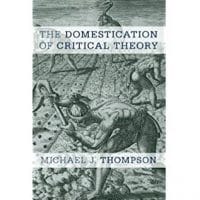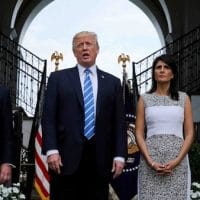-
Trump wants Spain to build a wall across the Sahara Desert
Since Spain only occupies a small part of the border, the wall would need to be built through many different countries.
-
The history of the workers’ unemployment insurance bill
At a time when the American population is radicalizing, when popular movements are coalescing around “radical” demands—Medicare for All, the abolition of ICE, tuition-free college, etc.—it can be useful to draw collective inspiration from the Workers’ Bill proposed by the U.S. communist party in 1930.
-
Mumia Abu-Jamal: locking down
September 10, 2018 Prison Radio broadcast from Mumia Abu-Jamal on the significance of a “lock down” that has been instituted for the entire state of Pennsylvania.
-
Popular economy workers and social Argentinian leaders, imprisoned
A group of union leaders, popular economy advocates, Senegalese street vendors, and militants from the Excluded Workers Movement and CTEP (MTE-CTEP) were taken into jail by Argentine police, in a situation marked by a high dose of violence and violation of their human rights Buenos Aires City.
-
Global instability and the development project: is the twenty-first century different?
Ever since the global financial crisis of 2008–2009, the trajectory of the world economy has been hesitant, unstable and prone to many risks. Output recovery has been limited and fragile; and, more significantly, even in the more dynamic economies, it has not increased good-quality employment or reduced inequality and material insecurity.
-
Socialism is about workers, not wealth funds
The Social Wealth Fund plan is insidious in the sense that it has the capacity to redirect vast amounts of energy and resources toward a goal presented as “socialist” when in reality it is fundamentally incompatible with socialism. We must bring the discussion out into the open to prevent such seductive ideas from compromising the basic vision and integrity of socialism.
-
NATO’s fascist wedge in Ukraine
THE latest advert for Ukraine’s armed forces depicts chiselled military hunks over a caption: “THEY WILL PROTECT YOUR INVESTMENTS — Ukrainian Army: protecting the borders of civilisation.”
-
Labor and human social metabolism (part 1)
Our global ecological crisis has created an increasing interest in Marx’s theory of metabolic rift as a crucial aspect of capitalism (Foster 2013). To appreciate fully how capitalism creates this rift, it is important to examine the human metabolic relation with nature in general and theoretical terms.
-
Boldness in the Marxist thinking of Samir Amín
The great social thinker, Samir Amin, has died. The social sciences have lost three unique figures in this year. First, the Brazilian Theotonio dos Santos, who inspired many to study the world system from a radical perspective. He was followed by the Peruvian Aníbal Quijano, who posed the concept of “cultural revolution” to give the peoples of Latin America their own identity.
-
The Domestication of Critical Theory – Michael J Thompson
What passes for Critical Theory today is nugatory; it is philosophically weak, and politically compromised. In Thompson’s words, the project has ‘abandoned the search for the real mechanisms and sources of social power’.
-
Censored documentary exposes Israel’s attack on Black Lives Matter
Israeli operatives and their U.S. lobbyists sprang into action when the Movement for Black Lives came out in support of the boycott Israel movement.
-
Maduro’s Beijing visit spooks a U.S. plotting Venezuela’s isolation
Given the humble goal of Caracas to free itself from the domineering whims of a U.S. imperialism keen on reviving the notorious Monroe Doctrine, it is obvious why the U.S. would see sinister motives in the fraternal reception Beijing has offered to the Venezuelan head of state.
-
Review of River of Dark Dreams
This marvelous work of history is a must read for anyone trying to understand the dynamics of slavery in the United States in the pre-Civil War period. Walter Johnson locates slavery as playing a central part in the development of a particularly racialised and oppressive capitalism in the slave states.
-
Stop blaming workers for Trump’s right-wing authoritarianism
The search for explanations of our current political climate, especially the rise of nationalists like Marine LePen in France, Narendra Modi in India, and our own president in the United States, has led pundits to return to the concept of “authoritarian” tendencies as a psychological phenomenon.
-
A Party with Socialists in It
A history of the left in the Labour Party highlights the need for a strong extra-parliamentary movement, argues Chris Nineham.
-
There is no refugee crisis. There is only a crisis of humanity
In Syria, the battle for the province of Idlib has begun. Over the course of the past few years, the remnants of the hardened fighters have retreated to this region on the Syria-Turkish border, where they have been under the overall command of an al-Qaeda inspired group.
-
The New York Times Editorial opposing military intervention in Venezuela may do more harm than good
U.S. establishment liberals are using their opposition to Trump’s military threats as a cover to back economic sanctions currently wrecking the Venezuelan economy, argues Professor Steve Ellner.
-
Venezuela poses no ‘threat to the world’—but WaPo’s claim that it does is dangerous
The phrase “a threat to the world” has a hyperlink to an earlier Tharoor piece (3/1/18), which includes the claim, “As many as 4 million Venezuelans—more than 10 percent of the population—have already left the country, according to the Brookings Institution,”
-
For greenhouse gases, half is not good enough
Although a truth of science is not equivalent to the consensus of scientists, neither historically nor now, there are times when scientific facts (or truths) are of such compelling importance that a near consensus of scientific practitioners ought to be regarded as fact. Yes, when I began smoking cigarettes at age fifteen there was something […]
-
‘Don’t worry, said father. Mother served the constables tea’
Sagar Abraham-Gonsalves writes about his clawing helplessness as his father, Vernon Gonsalves, was arrested on Tuesday in the Bhima-Koregaon case.




















